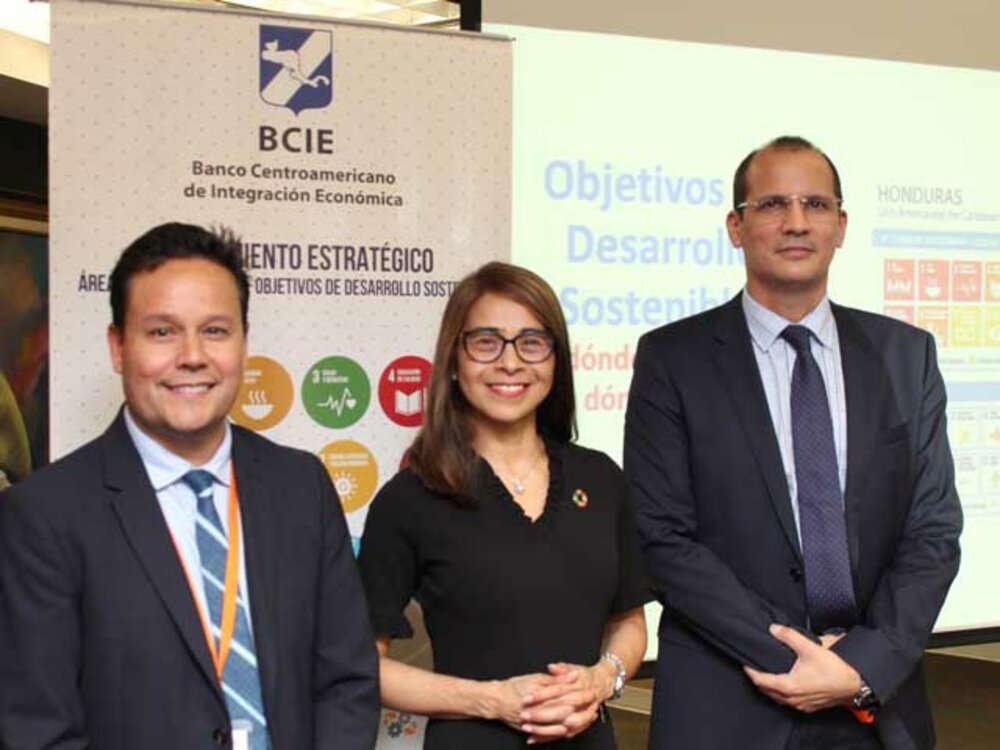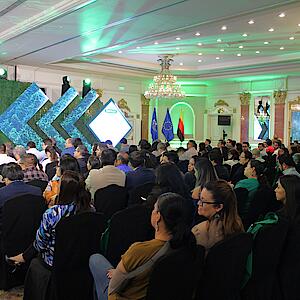CABEI holds Workshop focused on the 2030 agenda and SDGs

CABEI successfully manages collaboration opportunities with other international organizations in order to maximize its contribution to development.
Tegucigalpa, September 11, 2019.- Today, a workshop focusing on the Sustainable Development Goals (SDGs) was held at the headquarters of the Central American Bank for Economic Integration (CABEI). The event was led by Global Chief Economist for the United Nations Development Program (UNDP), George Gray Molina.
In her opening remarks, Chargé d'affaires of CABEI's Executive Vice Presidency, Nadia Baldelomar, indicated that, “As the region's multilateral development financial institution and in the framework of its commitment to the 2030 Agenda, the Bank seeks to impact on development in order to reduce poverty and inequality, while strengthening regional integration and the competitive insertion of its member countries.”
The workshop sought to teach in-depth knowledge regarding the SDG agenda, its goals, indicators and scope in order to achieve a world free of poverty and deprivation; a fairer world; and a world that respects the limits of nature; as well as to learn about the progress in compliance with such by the Central American region and its main challenges.
For his part, Mr. Gray Molina, referred to the challenges and opportunities in the field, while sharing a number of good practices in development, as well as financial and cooperation instruments that contribute to the achievement of the goals set out in the 2030 Agenda.
Mr. Gray Molina is a Bolivian economist, who serves as chief UNDP economist for Latin America and the Caribbean. In Bolivia, he worked as Chief Economist of the Ministry of the Presidency and as a technician in the Ministries of Planning and Sustainable Development.
CABEI Actions
CABEI's Institutional Strategy seeks to complement the efforts that other cooperators and organizations carry out with the aim of streamlining their contribution to the development of the region, including the definition of focus areas, availability of resources, institutional experience and proposals for international agreements, as well as focusing efforts on ending poverty and hunger, improving the health and wellbeing of citizens, achieving quality education, providing potable water and sanitation systems and purveying economic and social infrastructure to its member countries.



![[Translate to English:] [Translate to English:]](/fileadmin/_processed_/e/3/csm_WhatsApp_Image_2024-04-18_at_2.12.23_PM__2__590ef43ade.jpeg)
